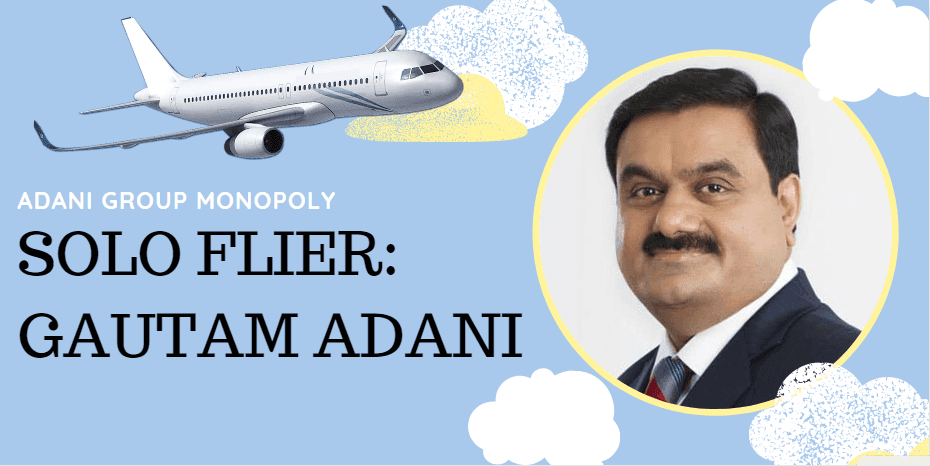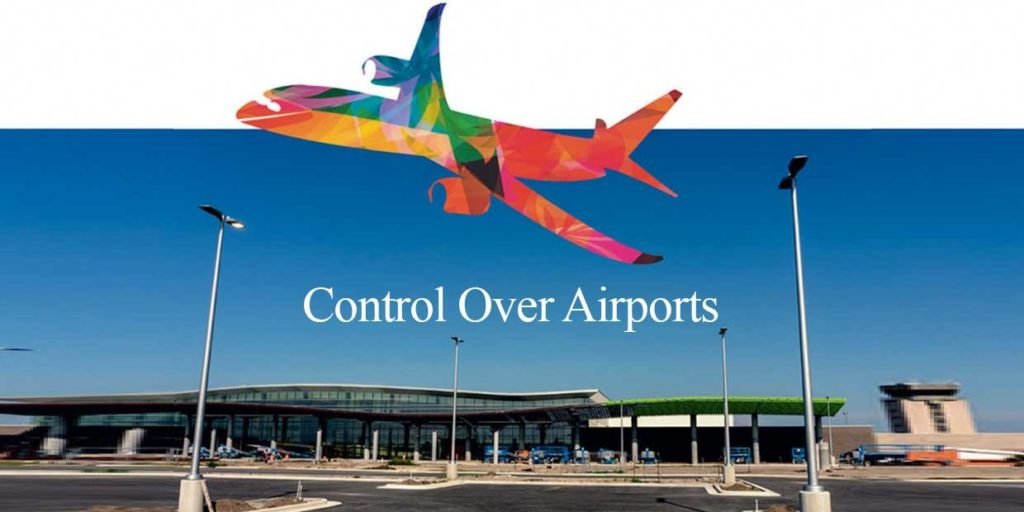The Solo Flier: Gautam Adani

Every country has the right to determine its own laws. And India can't afford monopolies
Yusuf Hamied
The rise of a monopoly, or a monopolistic competitive market, is a red flag for any economy and is one of the confirmed trends that take place when entrepreneurship is being encouraged without any checks and regulations. In such cases, the clear-cut bias of the governing body is observed, which is harmful not just for the consumers, but for other parties involved in the market as well.
Therefore, regulators exist- to make sure that the market operates efficiently with several players on a level playing field. However, lately the regulators themselves have been slacking off from performing their duties. Even in the past, very few regulators have done something substantial to prevent a single entity from asserting its dominant position in a particular industry or encourage competition.
The existence of a monopoly in any industry or market will give rise to underutilization of capacity, with the employees being exploited by lower wages and unsuitable working conditions. A monopolist will tend to produce smaller output, which it will sell at a higher price than in a perfectly competitive market, to maximise his profits. Practices such as price discrimination sprout in these imperfect markets, which prove to be harmful for the economy in the long run.
Natural monopolies are those where the initial costs of setting up the infrastructure required for the good are so high that the provider who invests in this will end up being the sole producer of that good in the particular industry. For example, railways are a natural monopoly of the government as the government spent a lot in setting up the train tracks, the train cars, the vast distribution network, amongst other things. In such a case, no other competitor has any scope of entering this market. Airports are a natural monopoly as well.
In 2018, the Indian government decided to free the capital stuck in a few airports of the country by allowing private players to manage them to bring in some efficiency. This, however, resulted in a not so welcome outcome, where Gautam Adani managed to bag six airports through an auction, including the Mumbai airport which is already privatized.
Who is Gautam Adani?
Gautam Adani is the founder and the Chairman of the Adani Group. Ranked among the top 3 industrial corporations in India, Adani Group’s Gautam Adani, a first-generation entrepreneur, is driven by the core philosophy of infusing “Growth with Goodness” through his vision of nation-building. Each of the Group’s businesses is dedicated to serving the nation in building world-class infrastructure capabilities to help accelerate India's growth.
Adani group monopoly is composed of 6 publicly listed bodies with joint revenues of USD $15 billion and market capitalization of more than USD $30 billion; with businesses spanning across Energy, Ports & Logistics, Mining & Resources, Gas, Defence & Aerospace and Airports. In each of its business areas, the Group has established a leadership position in India.
Why his control over Airports is not welcome?

Entrepreneurship is encouraged in any economy for the benefit of the economy, but monopoly can be harmful not only for the consumers of the concerned products and services but also for the stakeholders working in the ecosystem. Competition is a happy welcome because, minus the competition, one tends to settle for what is given to him on a plate even if it is mediocre.
It is the responsibility of the government to make sure there are enough players on the field. They should also make sure the welfare of smaller stakeholders and consumers. It has been seen in the past that the government regulators have tried their best to encourage competition and act against anyone abusing their power and position.
But it came as a surprise that little to nothing has been done to prevent a lone competitor from obtaining power over a chain of airports across the country. Having successfully bid for six airports, the Adani group has now taken over the Mumbai airport, thanks to the lack of ability of the GVK Group to keep hold of the asset. It is regrettable that the GVK Group received no support to surmount the stress due to the strict lockdown enforced by the government.
The GVK Group has been operating the Mumbai airports for years, and this should have been especially considered when banks are providing support to promoters to prevent them from closing shop in the form of replanning of the loan structure and providing moratoriums.
The same banks could have provided the much necessary support to the Group in the form of a loan syndicate or some other appropriate instrument. The probe carried out by the central investigative agencies should not have disrupted the company’s ongoing talks with potential lenders and investors entirely.
With its almost monopolistic approach to the natural monopoly market of airports, the Adani Group monopoly will enjoy massive clout due to its control over the nation’s busiest and their licenses in its treasure trove. The Group will also be controlling and operating the Navi Mumbai airport, and when you put this puzzle piece into the picture, it does make one wonder whether this much concentration of power into the hands of one corporate entity is really a wise choice or not.
A single operator controlling two major airports that are near one another (Mumbai and Navi Mumbai) is bound to hurt the other stakeholders such as the customers. The business models of these operations are built upon revenue sharing, and is automatically biased towards the promoters, making the customers suffer in the process.
How so? The airports will simply levy a high charge under the name of ‘maintenance charge’ or a ‘user development fee’ to recoup their revenue. These charges are exorbitantly high, and the customer will have no choice but to pay up.
Moreover, an economy where there is just one dominant player controlling a disproportionately large size of market share will leave the other players such as the retailers and providers of related services with almost no bargaining power, as shown in the case of customers above. It should also be remembered that building of six major airports is not an easy feat to accomplish, and the nation should not find itself in a vulnerable and worst-case scenario where its infrastructure is underperforming because the building of the promised airports has been delayed due to within-entity politics. It is all about diversification of risk, which we fail to do so in this case.
It is a historical phenomenon that monopolies have bred without any check or balance, for example, The East India Company, but for how long? It has seen its downfall in due time. Adani group monopoly will have to maintain a balance and not overuse his power if he wants to remain at the top.